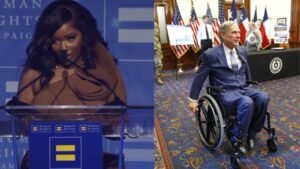
Actor Richard Chamberlain passed away at 90, just one day shy of his 91st birthday. He died last night at his home in Hawaii from complications of a stroke. His

Actor Richard Chamberlain passed away at 90, just one day shy of his 91st birthday. He died last night at his home in Hawaii from complications of a stroke. His

Michael Irving, Steven Anderson combined 38 NCAA tournaments, 11 regional finals, and three final fours. And here we go. And the Red Raiders will begin at first. Toppin is on

Bank of America is now canceling all accounts. This means checking accounts, savings accounts, CDs, safety deposit boxes, credit cards. They are canceling all accounts if they do not meet

An earthquake with a magnitude of 7.7 has shook Myanmar and Thailand. In Bangkok, the police say that one person has died. Another 50 people were hurt when a building

Won a national title as a player, got a chance now as a head coach. Tommy Lloyd had a big turnaround this year, Arizona was struggling. Cooper Flagg gets up

Now, I’m going to stop talking because HRC, or the Human Rights Campaign, is a well-known LGBTQ group. You are welcome to listen. This is what Crockett said over the